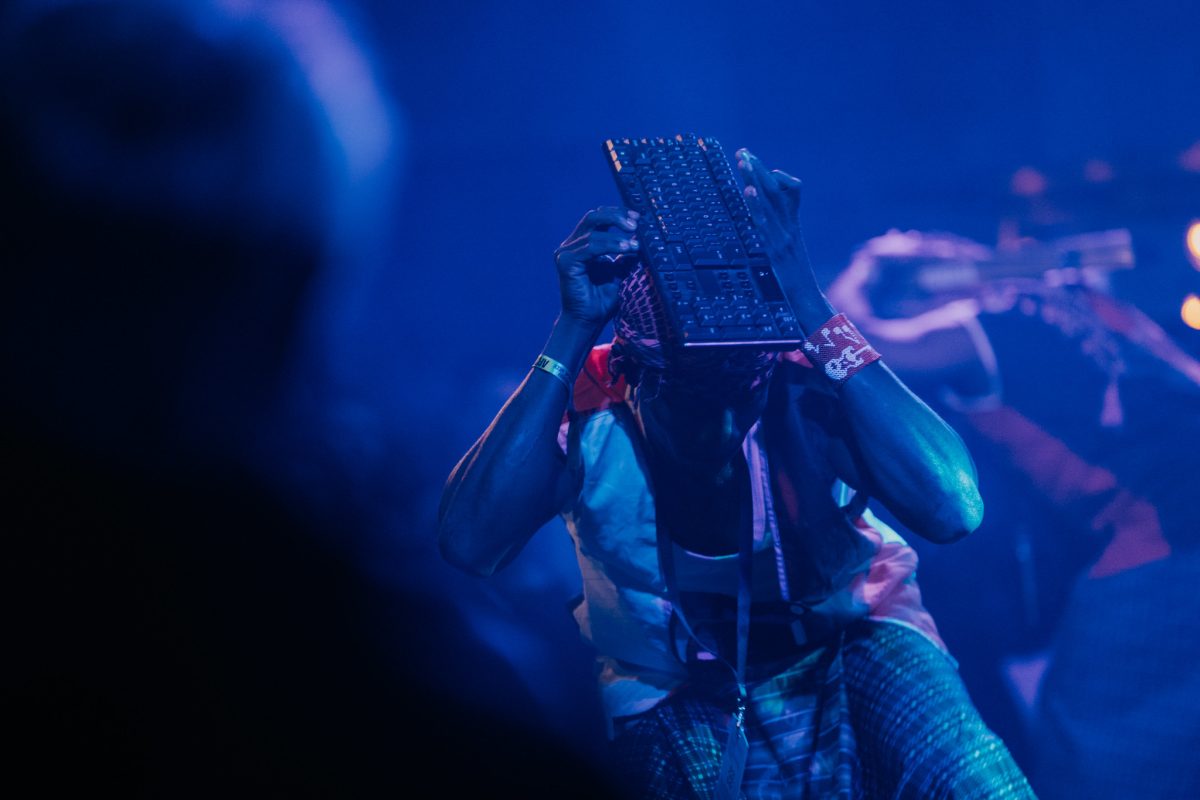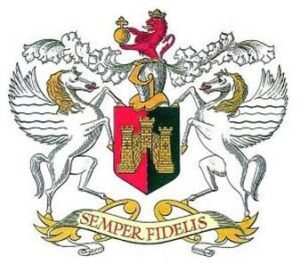Tallinn Estonia
Live Review
Photo : Darta Urbanovica
The shadow of death makes us feel more deeply, says Maksym Kononenko, ambassador of Ukraine to Estonia. As he concludes his speech at the opening of Tallinn Music Week 2025, rapturous applause fills the room and the crowd of delegates rise to their feet. Silently bubbling beneath last year’s edition, the politics have now boiled over.
Though proximity dictates many sharp tongues are aimed at Russia, the US catches its share of verbal brickbats too. Helen Sildna, head of Tallinn Music Week, expresses shock and confusion over recent developments in the West. Somewhat sandwiched between two global monoliths, here at the festival Central and Eastern Europe feel more united than ever.
Taiwan, too, is in the spotlight at Tallinn Music Week 2025, showing that solidarity can inspire new connections across continents.
The punters, though, are here for the music. And there’s plenty of it. My experience begins at the Club of Different Rooms, where Chih-Chih, Chih-Yin Kuo endears with the rustic sounds of indigenous Amis-language folk. Later on, I return here for Finland’s Anne-Mari Kivimäki Ensemble. The trio employ a rare combination of accordion, kantele (a 38-stringed instrument, plucked), nars-juh (a wooden stringed instrument, strummed) and vocals (in the Karelian language). Aggressive and enthralling, the nars-juh is as percussive as it is melodic, struck repeatedly as the ensemble rattle into a war-like instrumental. What is the place of such Folk music? Does it exist merely to keep the tradition alive, a sort of museum performance? It’s too potent to be kept behind glass, yet too traditional to be seen as contemporary.
Pop and Trad’s dynamic relationship is explored during the Folktronica night at D3, where Vilma Jää takes to the stage with kantele in tow. Hers is a blend of Ethnopop where Trance synths collide with violin plucking. As an Englishman, the Finnish-language pronunciation prohibits me from engaging in the audience participation.
For those with more of an Alternative inclination, there’s Paavli Kultuurivabrik. Away from the ‘gentrified’ festival hub, the bleakness of the Soviet whip can be felt on the long path from tram stop to venue, past crumbling concrete walls and broken window frames, the lace curtains still hanging abandoned behind shattered glass. Amongst this stands an independent music utopia. Formerly a fish processing factory, in the last two years the Paavli team have built two stages, a covered terrace, several outdoor bars and even a vegetable patch and community garden. And it’s here that some of Tallinn Music Week’s best bands are on display.
The first is i kindly ask you, a duo who saunter on stage as if taking over a prom afterparty wearing their dad’s suits. Yes, they look like they cut their own hair, and yes, they both put their glasses back on to leave the stage at the end. Their crunchy Industrial Noise-Rock is sold through old-timey samples, deadpan delivery and, more importantly, conviction.
Comically crude computer malfunction sounds suddenly warp into a beat, leaving no room for applause. Enough said.
In the main room Czech Rockers Sinks take the opposite approach, their sheer charisma surely convincing half the room to start bands of their own. Singer and Guitarist AntonínMika is a particularly arresting figure, urgently lurching across the stage, wielding his guitar like a knife; dangerous and authoritative.
“There’s nothing to do, ” he yells, “life is forever.”
We believe him.
On Saturday, Smag På Dig Selv take the reins here, the dual-saxophone dance act – a tracksuited skinhead on the baritone – encouraging darkly enjoyable chaos as they dive into the crowd. In the small room, things calm down for Kyla Vėjas! with their atmospheric Dark wave synths complimenting the cool Baltic breeze that settles into the Estonian capital as the weekend progresses.
Back in Telliviski, the industrial complex of venues forming the festival’s hub, snow forms in powdery whisps, swirling round the soles of the festival-goers. There are more highlights here, with Annael opening the Africa NOW! night at Fotografiska.
“If it’s too boring tell me and I’ll change the song straight away,” he tells us, before thumping beats take over and his crazy punching dance moves come rushing through him, ensuring boredom is unthinkable.
One of the most talked about acts of the weekend is Sisso & Maiko, who play casio and computer keyboards on their heads, lead a frenetic audience conga, and sprint forward with Singeli, a genre reminiscent of early 2000s ringtones. The Tanzanian duo wear matching headscarves and frequently derail their own set to play a refrain of ‘Jingle Bells’ before booty-shaking and blindfolding themselves for the final song. In a breathless 40 minutes, the tempo never drops below 200bpm. It’s a glimpse at the vanguard of contemporary African music, defying expectations at every turn.
As the final night leaps on, I return to the local scene as Estonian icon Mart Avi takes to the stage at F-Hoone, performing songs from his recent collaborative album with Ajukaja, Death of Music. In the 5 years since I last saw him perform, his persona has undergone a complete evolution. This is a new era for the talismanic auteur. In a silver-tinselled jacket, he darts around the stage, bird-like, a fragility present despite his assurance. Multiple ‘deaths’ occur, with Avi, a spindly ballerina, collapsing and regenerating, the absurdity of mortality brought to the fore by video game narration.
“Fatality.” Like glass, his voice is clear and pure. It’s no wonder the place is packed.
Kosovan solo artist La Fazani is handed the difficulted task of following Avi. After chatting to him the previous night about American intervention and the state of Left-Wing politics, I am left intrigued. He arrives on stage shirtless beneath a two piece suit, fairy wings on his head, accompanied by a partner whose scarlet hair flows into an inflatable pool from which she never emerges.
“This is the dream you had when you were 7 years old, ” he says. It wasn’t exactly what I had expected. Nevertheless, these theatrics bind the show together, allowing La Fazani to delve into an eclectic pool of Hip-Hop, Albanian Folk, Dance, and Indie, even at one point surfacing with an Eminem cover version. It’s the perfect way to encapsulate Tallinn Music Week as a whole: off the wall, unexpected, rooted in tradition but always forward thinking.
Ambassador Kononenko’s sentiment relies on there being something to feel. Ukraine is not just defending its territory, he says later in his speech, they are defending their voice too – their culture. Both history and future depend upon it. If the voice is silenced the territory ismeaningless. In Tallinn in early April, voices from across Europe and further afield gather and harmonise, the Singing Revolution still ringing in the ears.
We have a small favour to ask. Subscribe to Louder Than War and help keep the flame of independent music burning. Click the button below to see the extras you get!
Read full article at source
exeter.one newsbite last confirmed 2 weeks ago by Eddie Smith
Stay informed about this story by subscribing to our regular Newsletter




